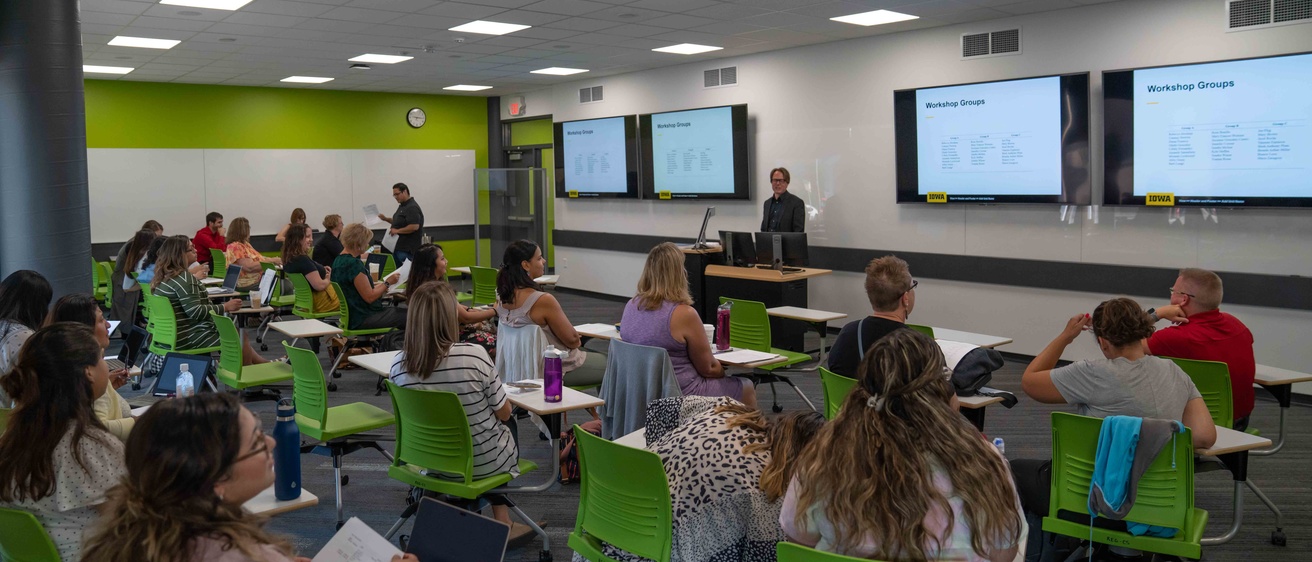
David Cassels Johnson, a professor of Multilingual Education at the College of Education and researcher affiliate in the Center for Social Science Innovation (CSSI), published a study examining how Iowa high school Spanish teachers accommodate and uplift heritage Spanish-speaking students.
The study, titled “Challenging deficit ideologies in Spanish heritage language policies and programs” was co-authored by Melanie Carbine, fourth-year doctoral student in the College of Education, and Christine Shea, associate professor and director of graduate studies in the Department of Spanish and Portuguese. It was published in the Foreign Language Annals and covered in an article by CSSI.
The following excerpt is from the article:
“Due to recent increases in immigration from Latin America to Iowa, heritage Spanish-speaking students are becoming more common in high school classrooms. These students are called “heritage” speakers due to familial exposure to Spanish, which can leave them with varying degrees of proficiency in the language.
Given that traditional high school Spanish classrooms are geared towards students learning Spanish as a second language, the needs of heritage speakers are often unmet.
To better understand the educational experiences of heritage speakers, Johnson surveyed Spanish teachers.
‘Our motivation was to understand how Iowa language policies and programs impact these educational experiences,’Johnson said. ‘In particular, we sought to understand how the beliefs and practices of high school Spanish teachers influenced the classroom polices and pedagogy for heritage language speakers.’”
